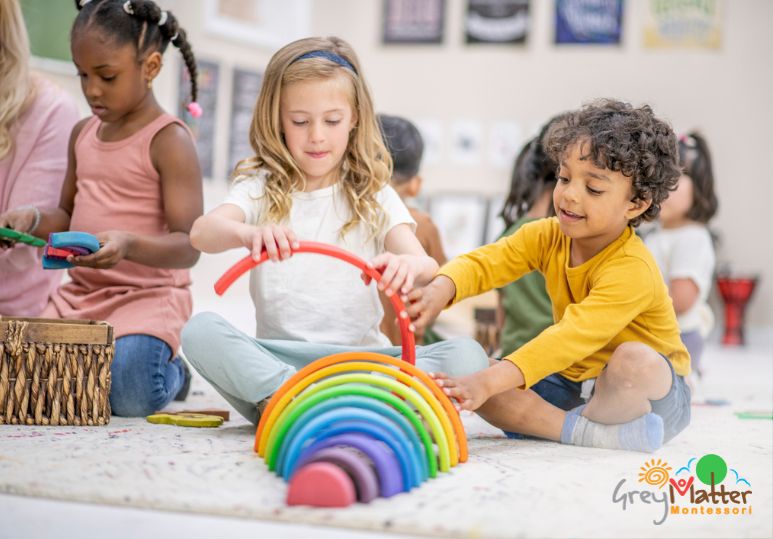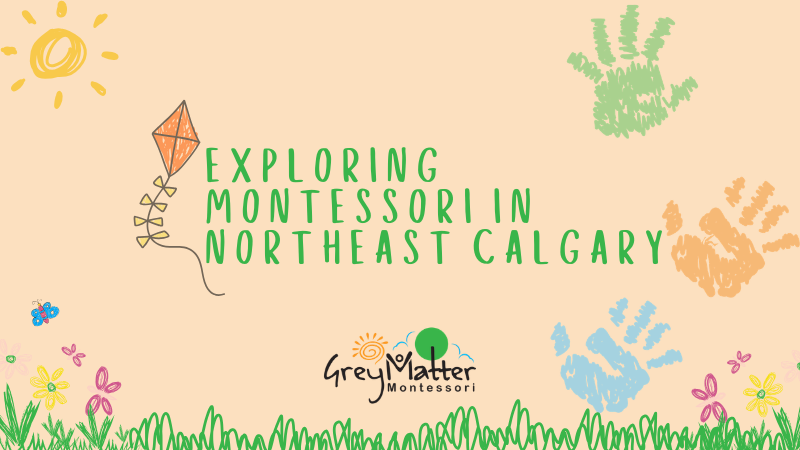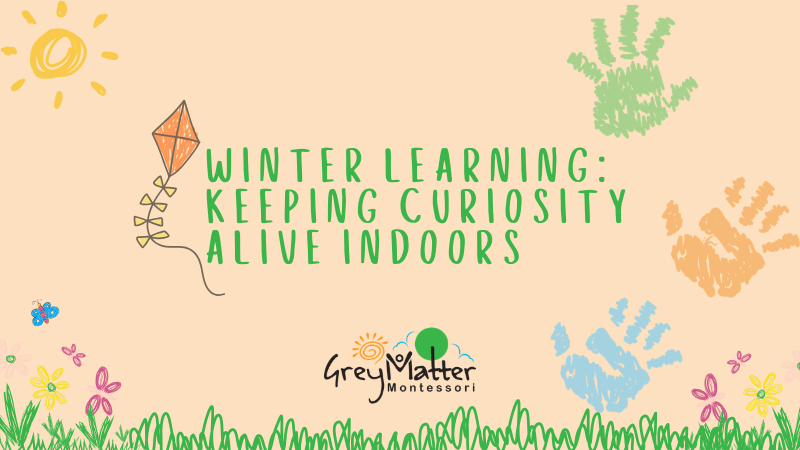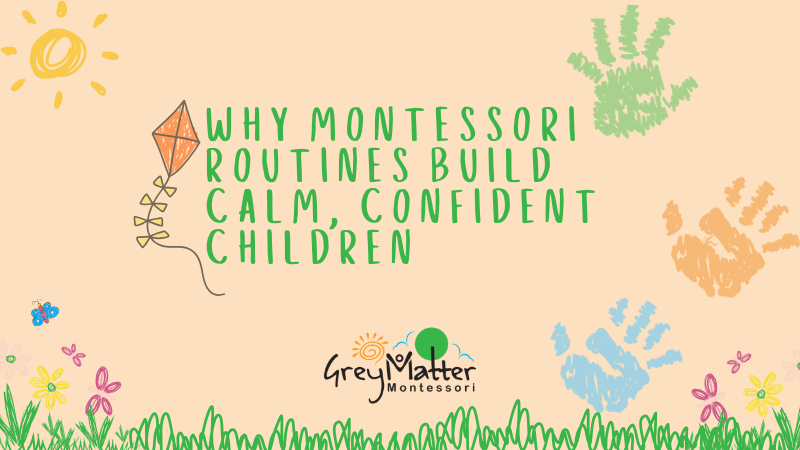At Grey Matter Montessori, our foundational belief is that education extends far beyond academics; it is about shaping compassionate, understanding individuals who thrive in and contribute positively to their communities. The Montessori method, with its emphasis on respect, empathy, and community, provides a robust framework for combating bullying by nurturing positive interactions from the earliest stages of childhood. This article explores how our approach to Montessori education cultivates an environment where empathy and community are at the heart of learning.
Creating an Environment of Respect and Understanding
One of the core principles of Montessori education is the creation of a classroom environment that respects each child as an individual. This respect fosters a sense of belonging and safety, where students feel valued and understood. By encouraging children to express their feelings and listen to others, we lay the foundation for empathy. Our classrooms are designed to be inclusive spaces where every student has the opportunity to contribute, collaborate, and learn from one another, reinforcing the idea that diversity of thought and background enriches the learning experience for everyone.
In a Montessori classroom, teachers nurture a culture of respect by acknowledging and celebrating each child's unique strengths and abilities. Rather than imposing a one-size-fits-all approach to learning, we recognize that every student learns at their own pace and in their way. This personalized approach not only honours individual differences but also empowers children to take ownership of their learning journey.
Teaching Conflict Resolution Through Empathy
Conflict is a natural part of human interaction, but how we handle conflict makes all the difference. At Grey Matter Montessori, we view conflicts as opportunities for learning and growth. We teach our students to approach disagreements with empathy, seeking to understand the other person's perspective before responding. Through guided discussions and role-playing exercises, children learn practical skills for conflict resolution, such as active listening, expressing their feelings constructively, and finding common ground.
By fostering a classroom environment where children feel safe expressing their emotions and viewpoints, we create a culture of open communication and mutual respect. This prevents bullying and empowers students to navigate conflicts peacefully and constructively. Moreover, by modelling empathetic behaviour and encouraging children to consider the feelings of others, we instill lifelong skills that are essential for building healthy relationships and thriving in a diverse society.
Cultivating a Sense of Community and Collective Responsibility
The Montessori method emphasizes the importance of community and each individual's role in creating a positive, supportive learning environment. From group projects to community service initiatives, our students engage in activities that highlight the value of teamwork and collective responsibility. These experiences teach children that their actions have an impact on others and that they have the power to make a positive difference.
By working collaboratively towards common goals, students learn to appreciate the strengths and contributions of their peers, fostering a sense of belonging and camaraderie. Whether organizing a fundraiser for a local charity or participating in a school-wide clean-up effort, our students understand that they are part of something larger than themselves. Through these shared experiences, they develop a deep sense of empathy, compassion, and social responsibility.
At Grey Matter Montessori, we believe that education should nurture the mind and the heart. Through our focus on empathy and community, we aim to create a generation of individuals who are not only academically prepared but also emotionally intelligent, compassionate, and committed to making the world a better place. By instilling these values from an early age, we empower our students to navigate life's challenges with understanding and grace and to stand up against bullying with courage and kindness. The Montessori approach to empathy and community is more than an educational philosophy; it's a blueprint for creating a more inclusive, respectful society.
Written on behalf of Grey Matter Montessori.
FAQs
Q. What role do parents play in Montessori education's approach to empathy and community?
A. Parents are encouraged to reinforce the values of empathy and community at home, maintain open communication with educators, and participate in school activities to strengthen the sense of community.
Q. How are conflicts resolved in a Montessori setting?
A. Conflicts are resolved by guiding students to approach disagreements with empathy, employing active listening, expressing feelings constructively, and finding common ground, turning conflicts into learning opportunities.
Q. What activities promote a sense of community in Montessori schools?
A. Activities that promote a sense of community include group projects, community service initiatives, and classroom responsibilities that teach students about teamwork, collective responsibility, and the impact of their actions on others.






